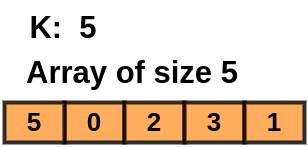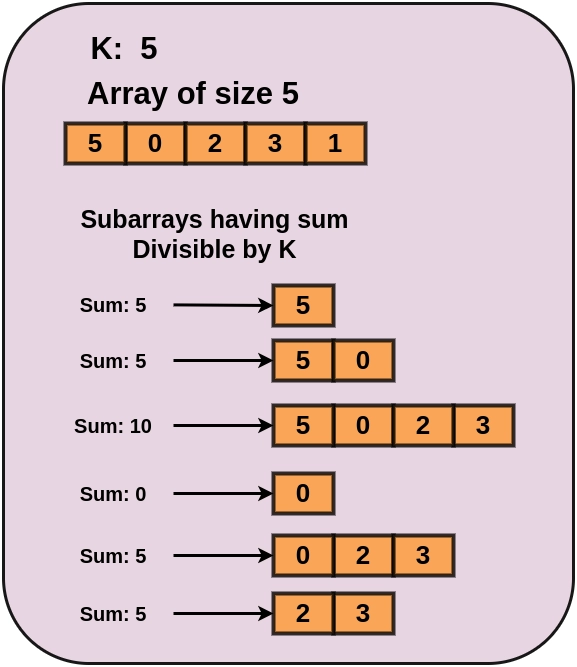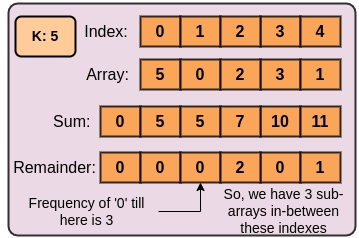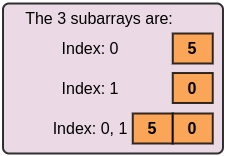Introduction
The array is one of the frequently used data structures. An array is a collection of the same type of data components. In an interview, there is a very good chance that you may be asked a question on an array. So, in order to fully grasp the notion of array, we must practice more and more array-related questions. In this blog, we will be discussing a coding problem in which we have to print the total count of all the sub-arrays that have a sum divisible by K.
Must Recommended Topic, Hash Function in Data Structure.
Problem Statement
Ninja has given you an array of size N. Your task is to count the total number of subarrays having a sum divisible by K.
Note: A subarray is a part of an array that is contiguous. For example, if the array is {3, 1, 6} then {1, 6} can be one of the many subarrays of the original array.
Sample Examples
Input

Output
Total Number of even-odd Subarray: 6
Explanation

Naive Approach
A naive or simple approach would be to generate all the possible subarrays and check while generating whether the subarray has a sum divisible by K or not.
Algorithm
ALGORITHM(ARR, K):
totalCount <- 0
for i <- 0 to arr.size():
for j <- i to arr.size():
If the sum of subarray from i to j is divisible by K:
totalCount <- totalCount + 1
end
end
return totalCountImplementation in C++
#include <bits/stdc++.h>
using namespace std;
int getCount(vector<int> arr, int k){
// For storing the totalCount of subarrays
int totalCount = 0;
// generating subarrays and checking whether there sum is divisible
// by K or not.
for( int i = 0; i < arr.size(); i++){
for( int j = i; j < arr.size(); j++){
// calculating the sum of the subarray
int sum = 0;
for(int k = i; k <= j; k++) sum += arr[k];
// increment totalCount if our sum is divisible by k
if (sum % k == 0) totalCount++;
}
}
// returning the total count of subarrays
return totalCount;
}
// main method
int main(){
// Getting the size of array from user
int n; cout << "Enter the size of the array: ";
cin >> n;
// Getting array elements from user
vector<int> arr(n);
cout << "Enter array elements: ";
for(int i = 0; i < n; i++) cin >> arr[i];
// getting value of K from user
cout << "Enter the value of K: ";
int k; cin >> k;
// getting the count of subarrays and printing it
cout << "Total number of subarray divisible by K: " << getCount(arr, k) << endl;
return 0;
}
Input
Enter the size of the array: 5
Enter array elements: 5 0 2 3 1
Enter the value of K: 5
Output
Total number of subarray divisible by K: 6
Time Complexity
The time taken by the above approach is O(N^3). As we are generating all the possible subarrays and then checking whose sum is divisible by K.
Space Complexity
No extra space is used. So, the space complexity of the above code is O(1)






